Celebrity
Homelander: The Dark Reflection of Modern Superheroes
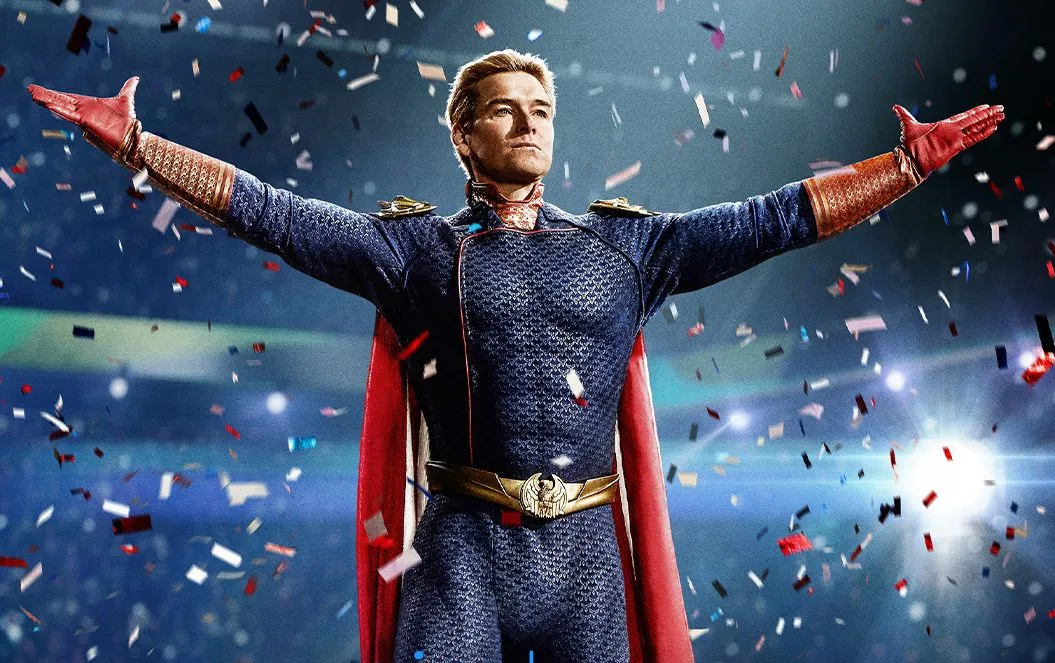
In an age where superheroes have saturated pop culture, one character has stood apart by turning the very idea of heroism on its head. He’s not from DC or Marvel, but he commands as much attention as Superman or Captain America. His name? Homelander. Charismatic on the surface yet terrifyingly unstable beneath, he represents a chilling and thought-provoking evolution of the superhero archetype.
This article delves into the character of Homelander—his origin, symbolism, psychological complexity, and impact on pop culture. Whether you’re a fan of The Boys or simply intrigued by modern mythmaking, this is the deep dive you didn’t know you needed.
The Rise of Anti-Heroes in Modern Storytelling
Why Audiences Are Drawn to Imperfect Characters
Gone are the days when heroes were flawless paragons of justice. In today’s media, we are drawn to anti-heroes—flawed, morally ambiguous characters who often walk the line between right and wrong. From Walter White in Breaking Bad to Tony Soprano in The Sopranos, audiences crave complexity, realism, and emotional depth.
Homelander fits neatly into this trend but goes a step further. He isn’t just a flawed hero—he’s a symbol of power unchecked and the terrifying potential of a savior with no moral compass.
Cultural Shifts in Hero Narratives
The evolution of superhero narratives reflects broader cultural anxieties. As society has become more skeptical of institutions and authority, our “heroes” have followed suit. The squeaky-clean superheroes of the past have given way to darker, grittier figures who reflect our fears as much as our hopes.
Homelander embodies this shift perfectly. He’s not only a product of this changing tide but a direct commentary on it.
Homelander’s Origins and Evolution
Birth of a Superhuman Weapon
Homelander was created by writer Garth Ennis and artist Darick Robertson in The Boys comic book series, which debuted in 2006. In the comics, he is the leader of The Seven, a superhero team managed by the corporate giant Vought International. The Amazon Prime adaptation, which premiered in 2019, brought him to the mainstream, largely thanks to Antony Starr’s chilling portrayal.
Born in a lab and raised without affection, Homelander was designed to be the ultimate superhero—a weapon of mass destruction in a cape. From his very inception, he was never meant to be a symbol of hope, but rather a tool of control.
The Superman Parody
It’s impossible to discuss Homelander without acknowledging his clear parallels to Superman. He shares the iconic red cape, super strength, laser vision, flight, and invulnerability. But unlike Superman, who was raised by loving parents and instilled with strong moral values, Homelander grew up in isolation, studied like a specimen, and manipulated into becoming a brand.
This contrast is intentional. Homelander is what Superman could have been without empathy, compassion, or humanity. He’s a cautionary tale wrapped in patriotic colors.
Homelander: Symbolism and Social Commentary
The Face of Manufactured Patriotism
One of the most striking aspects of Homelander is his use as a propaganda tool. His costume, emblazoned with American flags, and his public speeches dripping with nationalist fervor, all serve a corporate agenda. He is a walking, talking symbol of America’s militaristic and consumerist tendencies.
But his actions speak a different truth. Behind closed doors, he’s manipulative, ruthless, and emotionally volatile. This duality serves as a mirror to real-world power structures, where image often trumps integrity.
Power and Corruption
“Absolute power corrupts absolutely”—a phrase that could have been written specifically for Homelander. Unlike traditional superheroes who are humbled by their responsibilities, Homelander is corrupted by them. His sense of entitlement and superiority over others is chilling, yet disturbingly logical given his upbringing and environment.
The character poses a critical question: what happens when someone who is literally above everyone else begins to believe they are morally superior as well? Homelander is a dangerous answer to that question.
Psychological Profile: A Monster Made, Not Born
Trauma and Isolation
Homelander’s villainy doesn’t stem from an inherently evil nature but from years of emotional neglect and psychological manipulation. Raised in a lab and deprived of human connection, he never learned empathy. What he understands is control, attention, and domination.
His need to be loved and feared in equal measure stems from deep-rooted insecurity. Despite his godlike abilities, he’s emotionally stunted—a child in a man’s body, desperate for approval and terrified of being vulnerable.
Narcissism and Control
One of Homelander’s defining traits is his narcissism. He craves the adoration of the masses but cannot tolerate criticism or dissent. This makes him a ticking time bomb, especially as his need for control grows stronger over time.
He manipulates those around him, often with terrifying ease. His relationships are transactional, serving only to reinforce his self-image. This psychological depth elevates him from a mere villain to a complex character study.
Homelander in Pop Culture and Beyond
Redefining the Superhero Genre
With characters like Homelander, the superhero genre has undergone a radical transformation. No longer just about good vs. evil, these stories now explore the consequences of power, the ethics of intervention, and the dangers of unchecked authority.
Shows like The Boys have paved the way for more nuanced, adult storytelling in a genre traditionally dominated by black-and-white morality. This has opened the door for other properties—like Invincible or Watchmen—to challenge genre norms.
A Cautionary Tale for the Modern Age
Homelander is more than a character; he’s a symbol. He represents the dangers of idolizing figures without questioning their motives. He forces us to consider how power can be weaponized by corporations, governments, and individuals alike.
In an era of celebrity politicians, social media influencers, and billion-dollar entertainment empires, Homelander serves as a chilling reminder of how easily image can overshadow truth.
What Sets Homelander Apart
Charisma Meets Chaos
What makes Homelander truly terrifying is that he seems perfect. His chiseled features, confident speeches, and patriotic branding make him the ideal hero—on the surface. But just beneath that gleaming exterior lies instability, cruelty, and an insatiable hunger for control.
This duality is what keeps audiences riveted. We are drawn to him, even as we recoil from his actions. He’s compelling precisely because he’s believable.
A Mirror to the Audience
Perhaps the most uncomfortable truth about Homelander is what he reveals about us. Why are we so captivated by someone so flawed, so dangerous? The answer lies in our own relationship with power and celebrity. We, too, are guilty of elevating individuals to godlike status without questioning what lies beneath.
Homelander forces us to reckon with the monsters we create—on screen, in politics, and in our culture.
Conclusion: The Legacy of Homelander
In the ever-evolving landscape of superhero storytelling, Homelander stands as a landmark figure. He’s a subversion of the genre, a psychological case study, and a biting social critique all wrapped in one. His presence forces audiences to re-evaluate not only what makes a hero but also what happens when society blindly elevates power without accountability.
Far from being just another villain, Homelander is a narrative force—one that reflects our darkest fears and most sobering truths. In a world hungry for heroes, he is a reminder that sometimes, the caped crusader might be the one we should fear the most.

Celebrity
Chris Hoy Illness: What We Know About His Health Struggles

Chris Hoy Illness: What We Know About His Health Struggles
Few athletes have left as indelible a mark on the world of cycling as Sir Chris Hoy illness. With six Olympic gold medals and eleven World Championship titles, Hoy’s legacy is unquestionable. Yet, behind the medals and accolades, questions about Chris Hoy illness have sparked curiosity and concern among fans. The former track cyclist, who once dominated velodromes across the globe, has faced health challenges that remind us even champions are human.
This article dives into what is publicly known about Chris Hoy illness, his recovery, and how these challenges have affected his personal and professional life. From the intensity of elite sports to the physical toll it takes, we explore the journey of one of Britain’s most celebrated athletes.
Who Is Chris Hoy?
Before discussing health concerns, it’s important to understand the man behind the medals. Chris Hoy is a Scottish cyclist whose accomplishments have made him a household name.
Chris Hoy Bio
| Detail | Information |
|---|---|
| Full Name | Sir Christopher Andrew Hoy |
| Date of Birth | 23 March 1976 |
| Age | 50 |
| Profession | Professional Cyclist (Retired), Author, TV Presenter |
| Nationality | British (Scottish) |
| Net Worth (approx.) | $12 million |
| Notable Works / Achievements | 6 Olympic Gold Medals, 11 World Championships, MBE & Knighthood |
Hoy’s physical prowess was legendary, but like many elite athletes, years of intense training and competition can have lasting effects on the body.
Chris Hoy Illness: Public Awareness and Reports
For many, the first mention of Chris Hoy illness may raise questions about whether it refers to a chronic condition, injury, or temporary setback. While Hoy has generally been private about his personal health, certain public appearances, interviews, and reports have hinted at challenges he has faced post-retirement.
Commonly Reported Health Challenges
-
Musculoskeletal issues – Years of high-intensity cycling have led to joint and muscle strain.
-
Training-related fatigue – The extreme workload of professional cycling often impacts long-term energy levels.
-
Minor injuries – Though not widely reported as serious, Hoy has experienced sprains, fractures, and other sport-related injuries.
-
Recovery from surgery – Like many retired athletes, minor surgical interventions may have been necessary.
These issues are normal among retired elite athletes, but public interest turns into concern when we hear phrases like Chris Hoy illness in media reports.
The Physical Toll of Elite Cycling
To understand Chris Hoy illness, one must first understand the demands of track cycling. Sprint cycling, Hoy’s specialty, requires explosive power, exceptional cardiovascular fitness, and years of repetitive motion training.
How Training Impacts Long-Term Health
-
Joint Stress – Knees, hips, and lower back endure repeated strain.
-
Muscle Fatigue – High-intensity training can cause microtears that require careful rehabilitation.
-
Cardiovascular Pressure – Peak performance years put added stress on the heart.
-
Recovery Needs – Even post-retirement, the body may require ongoing physiotherapy and care.
This cumulative stress explains why Chris Hoy illness stories, even minor, garner attention—it’s a reminder that Olympic champions are not immune to the physical consequences of their careers.
Mental and Emotional Challenges
Health isn’t just physical. Hoy has also spoken in interviews about the mental pressures of elite sport. The term Chris Hoy illness may sometimes encompass these struggles as well.
Psychological Factors
-
Performance Pressure – Maintaining peak condition for years can lead to stress and anxiety.
-
Transitioning Out of Sport – Retirement requires identity adjustment, which can affect mental health.
-
Public Scrutiny – Media attention magnifies every minor health concern.
Understanding these mental aspects is essential to fully appreciate the meaning behind Chris Hoy illness in public discourse.
How Hoy Manages His Health Today
Despite reports of health challenges, Chris Hoy has maintained an active and productive lifestyle.
Key Strategies
-
Regular Exercise – Hoy continues light training and cycling to maintain mobility and fitness.
-
Physiotherapy – Targeted treatments help manage joint and muscle issues.
-
Balanced Lifestyle – Focus on diet, rest, and recovery post-retirement.
-
Advocacy for Cycling Safety – Hoy promotes proper training methods and injury prevention for younger cyclists.
These strategies illustrate how he addresses Chris Hoy illness proactively rather than letting it define him.
Fan Concerns and Public Support
Whenever an athlete of Hoy’s caliber is linked to health issues, fans respond with empathy and curiosity. Social media, fan clubs, and news forums often discuss Chris Hoy illness, showing the deep connection fans feel to his legacy.
Ways Fans Engage
-
Following updates from interviews and media appearances
-
Sharing supportive messages on social media
-
Discussing the impact of his health on public appearances and events
This engagement demonstrates how fans play a role in an athlete’s post-career health narrative.
Lessons from Chris Hoy’s Health Journey
While Hoy’s illness or health concerns may not be life-threatening, his experience provides valuable lessons for athletes and fans alike:
Takeaways
-
Long-term care matters – Elite sports can leave lasting physical effects.
-
Mental well-being is crucial – Transitioning from intense careers requires support.
-
Proactive management works – Exercise, physiotherapy, and balanced routines mitigate risks.
-
Public privacy is important – Not all health struggles need to be public, but awareness helps fans understand the human side of sport.
These points underscore why Chris Hoy illness discussions extend beyond curiosity—they inspire healthier approaches for aspiring athletes.
Chris Hoy Illness in the Media: Fact vs. Speculation
Media coverage often exaggerates or sensationalizes health concerns, which can distort public perception. When seeing headlines about Chris Hoy illness, it’s important to differentiate fact from speculation.
How to Evaluate Reports
-
Verify statements from Hoy or official sources
-
Consider the context—minor injuries or fatigue are often labeled as illness
-
Understand the difference between chronic conditions and temporary setbacks
Responsible reporting ensures that discussions of Chris Hoy illness remain informative rather than misleading.
Conclusion: Understanding the Man Behind the Medals
Chris Hoy illness reminds us that even the most decorated athletes face human vulnerabilities. His health challenges, while often minor compared to life-threatening illnesses, highlight the physical and mental costs of elite performance.
Hoy continues to inspire through resilience, advocacy, and his ongoing engagement with cycling. Fans are reminded that beyond medals and records, champions are people first. By understanding his health journey, we gain a fuller appreciation of his legacy, both on and off the track.
Whether you are a cycling fan, aspiring athlete, or simply curious about human resilience, Hoy’s experience shows that careful management, support systems, and mental strength are key to overcoming challenges. Chris Hoy illness is not a story of defeat—it’s part of the broader narrative of a man who achieved greatness while facing the realities of life beyond sport.
Celebrity
Peter Kay Net Worth: How the Comedian Made His Fortune

Peter Kay Net Worth: How the Comedian Made His Fortune
Few comedians have captured the hearts of Britain quite like Peter Kay. With his sharp observational humor, impeccable timing, and relatable storytelling, he has turned laughter into a thriving career. But beyond the punchlines and TV specials, many fans are curious: what is Peter Kay net worth, and how did he accumulate such wealth?
In this article, we’ll explore the life, career, and financial journey of Peter Kay. From humble beginnings in Bolton to selling out arenas across the UK, his story is a fascinating combination of talent, hard work, and strategic choices. Whether you’re a comedy fan, aspiring entertainer, or just curious about celebrity finances, this guide provides a comprehensive look at Peter Kay net worth and how the man behind the laughs became a millionaire.
Who Is Peter Kay?
Before diving into his financial success, it’s important to understand the man himself. Peter Kay is not just a comedian; he is a cultural phenomenon whose influence spans television, live performances, and the world of British comedy.
Peter Kay Bio
| Detail | Information |
|---|---|
| Full Name | Peter John Kay |
| Date of Birth | 2 July 1973 |
| Age | 50 |
| Profession | Comedian, Actor, Writer |
| Nationality | British |
| Net Worth (approx.) | $30 million |
| Notable Works / Achievements | Phoenix Nights, That Peter Kay Thing, Car Share, Record-breaking stand-up tours |
This background sets the stage for understanding the scale and sources of Peter Kay net worth.
Early Life and Humble Beginnings
Peter Kay was born and raised in Bolton, England, in a working-class family. His humor was nurtured from a young age, often observing everyday life and the quirks of people around him.
Key Early Influences
-
British sitcoms and sketch comedy
-
Local theatre and performance arts
-
Family interactions and community life
-
Observational humor rooted in Northern England culture
These influences shaped his comedic style, which is central to the success that contributes to Peter Kay net worth today.
The Rise of a Comedy Legend
Peter Kay’s breakthrough came with his TV sketches and stand-up performances in the late 1990s and early 2000s. Shows like That Peter Kay Thing and Phoenix Nights won critical acclaim and introduced him to a nationwide audience.
Milestones in Career Growth
-
1998: First major TV appearance
-
2001–2003: Phoenix Nights becomes a cultural hit
-
2003–2010: Record-breaking stand-up tours
-
2015: Car Share series launches, receiving awards and praise
Each project not only increased his fame but also contributed significantly to Peter Kay net worth, establishing multiple streams of income.
Sources of Peter Kay Net Worth
The comedian’s wealth isn’t derived from a single source. Instead, it’s the result of diversified efforts across television, live performances, writing, and smart career management.
Main Revenue Streams
-
Stand-Up Tours – Selling out arenas and stadiums, some tours grossed millions of pounds.
-
Television Shows – Phoenix Nights, That Peter Kay Thing, Car Share, and specials brought in royalties and licensing deals.
-
DVD and Streaming Sales – Many shows and specials continue to generate revenue through DVD sales and online platforms.
-
Commercial Appearances – Endorsements and appearances, including charity events, contributed to his net worth.
-
Merchandising and Licensing – Some projects included merchandise that further boosted earnings.
This multifaceted approach explains why Peter Kay net worth has grown steadily over decades.
Record-Breaking Stand-Up Success
Perhaps the most lucrative aspect of Peter Kay’s career has been live performance. He has sold millions of tickets across the UK, often breaking attendance records.
Notable Tours
-
The Tour That Doesn’t Tour Tour…Now On Tour – one of the highest-grossing UK comedy tours ever.
-
An Audience With Peter Kay – combined TV and live performances to generate substantial revenue.
Live shows not only contribute to income but also reinforce brand value, ensuring Peter Kay net worth remains strong.
Television and Acting Contributions
While stand-up remains central, Peter Kay’s TV projects have also played a major role in his wealth. Writing, producing, and starring in successful sitcoms creates long-term income streams.
TV Achievements
-
Phoenix Nights – Cult classic, repeated broadcasts generate royalties
-
Car Share – BAFTA-winning series with continued viewership
-
Cameos and Specials – Occasional appearances maintain audience engagement
These endeavors highlight how TV projects can build both fame and net worth simultaneously.
Peter Kay’s Business Acumen
Beyond talent, Peter Kay has shown a keen understanding of his market. By selectively choosing projects and managing tours efficiently, he maximizes earnings while maintaining brand integrity.
Strategies That Increased Net Worth
-
Limiting public appearances to maintain demand
-
Carefully timed TV specials and live shows
-
Ownership stakes in creative projects
-
Engaging loyal fan base for long-term revenue
Such strategic decisions are as important to Peter Kay net worth as his comedic talent.
Philanthropy and Giving Back
Peter Kay is also known for charity work. While these efforts do not directly contribute to his net worth, they enhance his public image, making him a trusted figure in the entertainment industry.
Notable Contributions
-
Charity gala performances
-
Fundraising tours for local and national causes
-
Community engagement events
This balance of wealth and goodwill ensures a positive legacy alongside financial success.
Challenges and Career Breaks
Even with tremendous success, Peter Kay faced challenges. Health issues, personal life considerations, and the pressures of fame led him to take breaks from performing.
Impact on Net Worth
-
Temporary absence from tours reduced short-term income
-
Strategic pauses increased demand for future shows
-
Focused on quality over quantity in projects
These decisions demonstrate long-term planning, which indirectly safeguards Peter Kay net worth.
Fun Facts About Peter Kay’s Wealth
-
He has a collection of luxury cars.
-
Maintains a private lifestyle despite public fame.
-
Continues to sell out shows decades into his career.
-
Occasionally returns to small venues, keeping audience connection strong.
Such personal touches make the story of Peter Kay net worth relatable and human.
Conclusion: The Man Behind the Millions
Peter Kay net worth is not merely a figure; it reflects a career built on talent, timing, and smart decisions. From Bolton to sold-out arenas across the UK, Peter Kay has turned observational humor into a financial empire. His blend of television, live performances, and business acumen ensures that his net worth will continue to grow, even as he maintains the humor and humility that fans adore.
Fans and aspiring entertainers can learn from his journey: passion, consistency, and strategic planning are as crucial as raw talent. Peter Kay net worth is a testament to a lifetime of laughter, dedication, and smart career choices.
Whether you are a fan of his shows, stand-up specials, or simply curious about celebrity wealth, Peter Kay’s story demonstrates how humor, hard work, and thoughtful planning can create lasting success.
Celebrity
Spencer Matthews: Life, Career, and Key Achievements
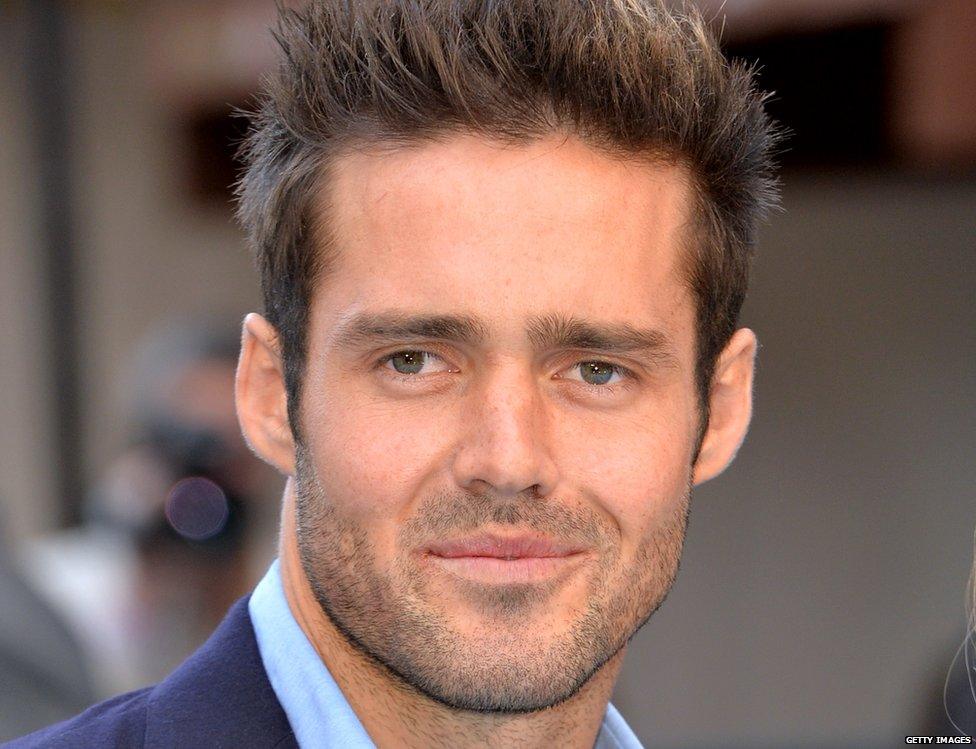
Spencer Matthews: Life, Career, and Key Achievements
Spencer Matthews is a name that resonates with fans of British reality television, business enthusiasts, and socialites alike. Known for his charm, ambition, and occasional controversy, Spencer Matthews has built a career that spans reality TV, entrepreneurship, and philanthropy. Beyond the glitz and glamour, his story is one of evolution, determination, and influence—a journey that offers valuable insights into navigating fame, building a brand, and creating impact.
In this article, we’ll explore Spencer Matthews life, career, and key achievements, taking a deep dive into his early years, rise to fame, business ventures, and the lessons his journey imparts.
Early Life and Background
Understanding Spencer Matthews begins with his early life and the environment that shaped him. Born into a family with strong ties to British society and business, Matthews had both opportunity and expectation from a young age.
Family and Upbringing
Spencer Matthews was born on August 25, 1988, in London, England, into a family well-known for its business and social connections. Growing up in such an environment, he was exposed to high society events, philanthropic ventures, and entrepreneurial thinking early on.
-
Raised in a supportive yet high-expectation environment
-
Exposed to networking and business insights from an early age
-
Developed a keen awareness of public perception and media
Education
Education played a pivotal role in shaping Matthews’ early ambitions. He attended Eton College, one of the UK’s most prestigious schools, known for molding future leaders and influencers. His time at Eton instilled discipline, social skills, and a sense of responsibility that would later become instrumental in his career.
-
Excelled academically while balancing extracurricular interests
-
Gained exposure to leadership and public speaking opportunities
-
Cultivated relationships that would later intersect with his career
Rise to Fame: Reality Television
Spencer Matthews first captured the public’s attention through reality television, which became the foundation of his celebrity status.
Made in Chelsea
In 2011, Matthews joined the cast of Made in Chelsea, a reality show documenting the lives of young, affluent Londoners. His personality—combining wit, charm, and a touch of controversy—quickly made him a fan favorite.
-
Known for his dramatic storylines and on-screen relationships
-
Developed a personal brand synonymous with luxury and lifestyle
-
Gained recognition that opened doors for future ventures
Impact on Public Image
While his time on reality TV brought fame, it also attracted scrutiny. Matthews learned to navigate public perception, using it to bolster his brand while maintaining a level of privacy in personal matters.
-
Leveraged reality TV fame into social media influence
-
Built a platform for brand collaborations and endorsements
-
Learned early lessons about balancing fame and personal life
Business Ventures and Entrepreneurial Success
Beyond television, Spencer Matthews has made a name for himself in the business world, demonstrating that his ambitions extend well past reality TV.
CleanCo: The Health and Wellness Venture
One of Matthews’ most notable entrepreneurial achievements is the founding of CleanCo, a health and wellness brand offering clean beauty and nutrition products.
-
Focuses on sustainability, ethical sourcing, and innovation
-
Expanded the brand to international markets
-
Highlights Matthews’ commitment to long-term business growth
Other Ventures
In addition to CleanCo, Matthews has invested in multiple projects and collaborations, including media appearances, endorsements, and charitable initiatives. His diverse portfolio reflects both his business acumen and his ability to leverage his celebrity status effectively.
-
Endorsements with lifestyle and wellness brands
-
Strategic collaborations in the media and entertainment space
-
Philanthropic contributions through charity partnerships
Personal Life and Relationships
Fans are often curious about Spencer Matthews personal life, which has seen public highs and lows.
Romantic Relationships
Matthews has been linked to several high-profile relationships, which have been extensively covered by the media. Currently, he shares a public life with Sophie Habboo, whom he married in a lavish ceremony.
-
Known for maintaining a balance between public interest and personal privacy
-
Relationships have contributed to his media presence and personal growth
Family and Values
Family remains central to Matthews’ life. He has often spoken about the influence of his parents and siblings on his values, work ethic, and decision-making.
-
Strong sense of loyalty and family connection
-
Emphasis on giving back and supporting loved ones
Philanthropy and Public Engagement
Spencer Matthews’ influence extends beyond business and television into social impact and charitable work.
Charity Work
Matthews has participated in multiple charitable initiatives, particularly those focusing on children’s welfare, health, and social empowerment.
-
Active involvement in fundraising campaigns
-
Public awareness efforts for social causes
-
Integration of philanthropy into his brand identity
Advocacy and Influence
Through his public appearances and social media platforms, Matthews raises awareness about important issues, combining influence with responsibility.
-
Promotes health, wellness, and sustainability
-
Engages with followers on topics of social responsibility
-
Uses celebrity status to amplify positive messages
Key Achievements and Awards
Throughout his career, Spencer Matthews has accumulated a series of achievements that reflect his versatility and ambition.
Television Accolades
-
Popularity and longevity on Made in Chelsea
-
Recognition for on-screen charisma and storytelling
-
Influence on the reality TV genre in the UK
Business Achievements
-
Successful launch and growth of CleanCo
-
Expansion into international markets
-
Recognition for entrepreneurial innovation
Philanthropic Impact
-
Fundraising and charitable campaigns
-
Advocacy for health, wellness, and ethical business practices
-
Mentorship and public engagement initiatives
Lessons From Spencer Matthews’ Journey
Spencer Matthews’ story offers lessons for aspiring entrepreneurs, media personalities, and anyone navigating public life:
-
Adaptability Matters: Successfully transitioned from reality TV to business
-
Leverage Opportunities: Turned fame into a platform for entrepreneurship
-
Balance is Key: Maintains personal life while engaging publicly
-
Purposeful Influence: Uses celebrity status to promote positive change
Table: Spencer Matthews Bio
| Detail | Information |
|---|---|
| Full Name | Spencer Matthews |
| Date of Birth | August 25, 1988 |
| Age | 35 (as of 2024) |
| Profession | Reality TV Star, Entrepreneur |
| Nationality | British |
| Net Worth (approx.) | £12 million |
| Notable Works / Achievements | Made in Chelsea, CleanCo, Philanthropy, Media Appearances |
Conclusion: Spencer Matthews’ Enduring Legacy
The life and career of Spencer Matthews demonstrate the power of ambition, adaptability, and strategic thinking. From the bright lights of reality TV to the nuanced world of entrepreneurship and philanthropy, Matthews continues to evolve, leaving a mark both in the public eye and behind the scenes.
His journey offers inspiration for those seeking to balance fame, business, and social responsibility. By learning from Matthews’ successes, challenges, and strategic choices, fans and aspiring professionals alike can gain insight into the skills and mindset required to thrive in a dynamic world.
Whether you admire his television work, business acumen, or philanthropic endeavors, Spencer Matthews stands as a compelling example of someone who leverages opportunity, navigates challenges, and achieves meaningful impact.
-
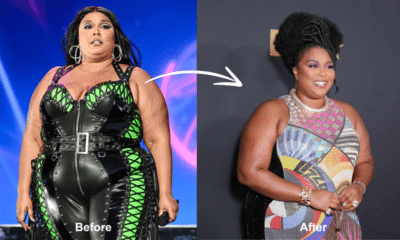
 Lifestyle8 months ago
Lifestyle8 months agoLizzo Weight Loss: A Journey of Empowerment and Self-Love
-
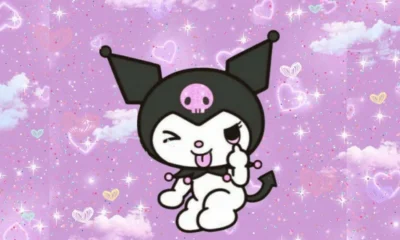
 Game8 months ago
Game8 months agoKuromi: The Mischievous Icon of Kawaii Culture
-

 Events8 months ago
Events8 months agoعيد الاضحى 2025: A Celebration of Faith, Sacrifice, and Unity
-
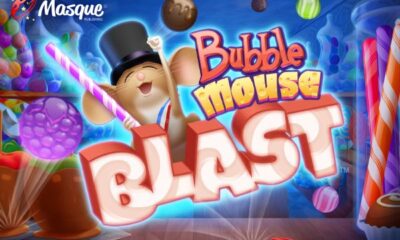
 Game8 months ago
Game8 months agoBubble Mouse Blast: The Addictive Puzzle Game Captivating Players Worldwide
-

 Celebrity8 months ago
Celebrity8 months agoThe Rise, Fall, and Legacy of Frank Fritz: A Journey Through Fame and Adversity
-
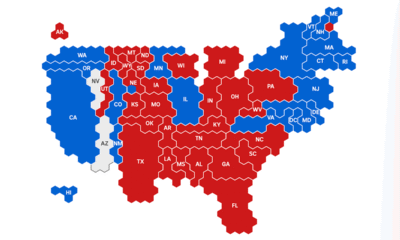
 Politics6 months ago
Politics6 months ago2024 US Election Results Trump’s Comeback & Political Impact
-
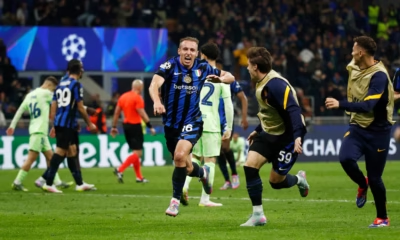
 Sports8 months ago
Sports8 months agoBarcelona vs Inter: A Rivalry Forged in European Glory
-

 Lifestyle6 months ago
Lifestyle6 months agoAuggie Savage: Rise, Career Journey, and Inspiring Story


